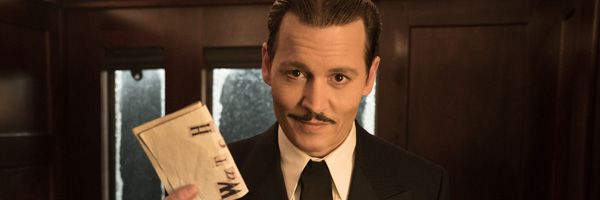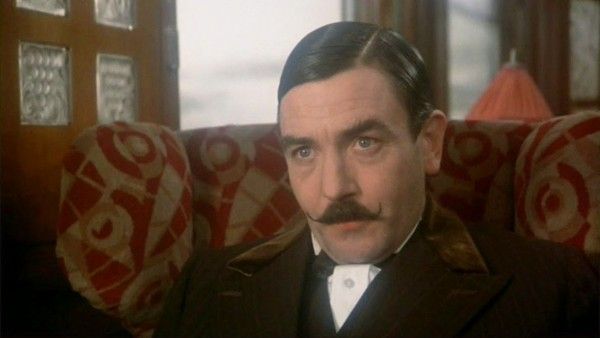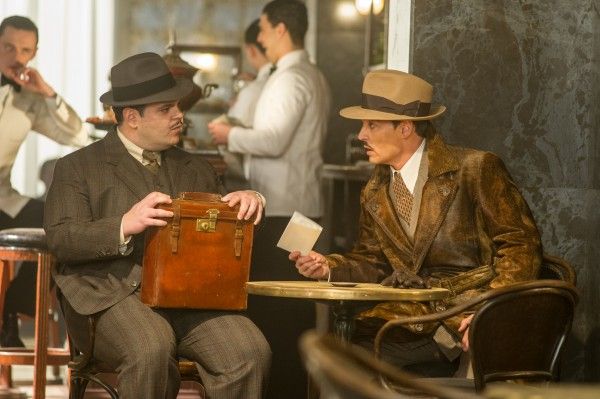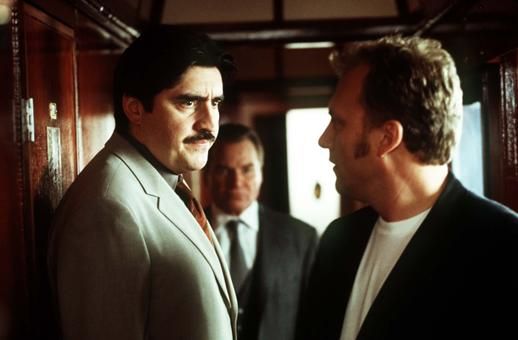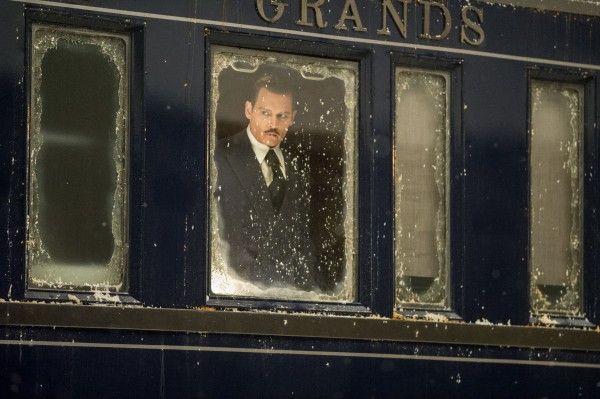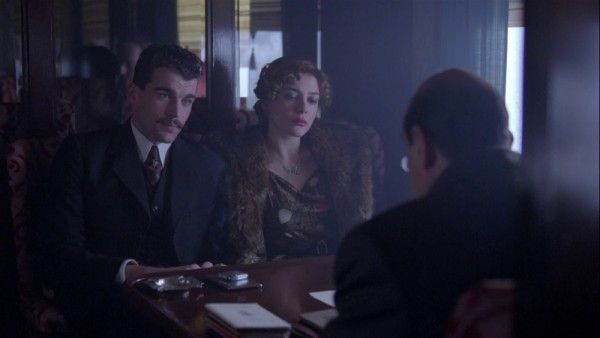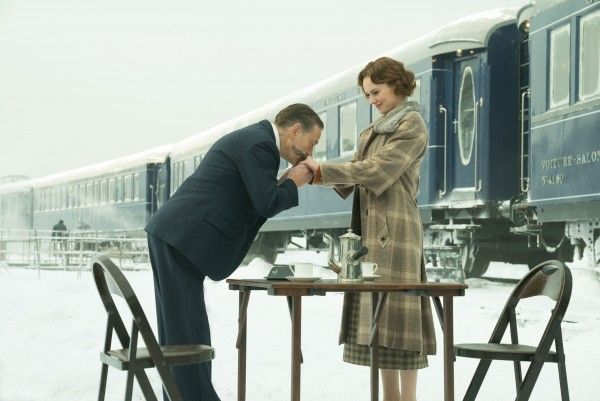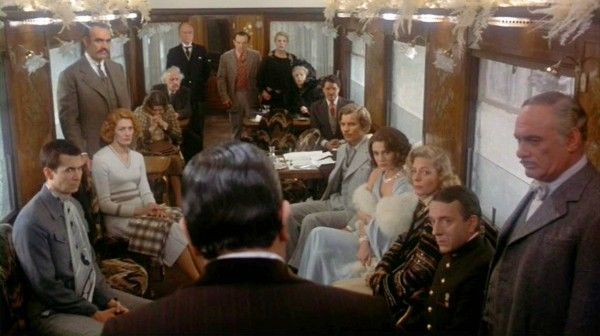Those who still get themselves into a mild tizzy over Dame Judi Dench’s Oscar win for a minor role in a less-than-minor movie have clearly never heard of Ingrid Bergman’s win for 1974’s Murder on the Orient Express movie. In Sidney Lumet’s envisioning of Agatha Christie’s classic whodunit, Bergman takes on the role of Greta Ohlsson, a German Christian missionary who teaches “little brown babies” in poverty-stricken nations and whom has a secret connection to the titular crime. Her screen time might be even less than Dench and her character has far less bearing on the plot than the Queen does in Shakespeare in Love. The win was all the more inexplicable considering that the formidable actress beat out superior nominees like Diane Ladd in Alice Doesn’t Live Here Anymore, Valentina Cortese in Day for Night, and Madeline Kahn in Blazing Saddles.
Bergman wasn’t alone in representing Lumet’s adaptation at the Academy Awards in 1975; she was merely the only representative that won. Cinematographer Geoffrey Unsworth, the brilliant DP behind 2001: A Space Odyssey and Richard Donner’s Superman movies, was also nominated, along with costume designer Tony Walton, screenwriter Paul Dehn, composer Richard Rodney Bennett, and Albert Finney, who played the iconic Hercule Poirot for Lumet. Out of those names, only Mr. Walton should have been considered for any honors, whether they be an Oscar or otherwise.
And yet, under the wayward metrics that guide the voters for the Academy Awards, Lumet’s Murder on the Orient Express fit the bill. The spark of the story is the nighttime slaying of an infamous kidnapper and murderer, Carsetti (Richard Widmark), who travels under the name Mr. Ratchett on the titular locomotive. The engine of the Lumet’s film is the company of high-caliber performers that he got to play the dozen suspects that are traveling along with Ratchett and Poirot. Sean Connery, Vanessa Redgrave, Michael York, Anthony Perkins, Lauren Bacall, John Gielgud, and Jacqueline Bisset all have their tete-a-tete with Finney’s mouse-voiced inspector with a variety results. Though the ensemble is never less than engaging, Perkins is the sole actor to suggest that there is an antic inner life to his character. And to his credit, Connery is a notable commanding presence in his interrogation scenes with Finney.
With Lumet, the issue of style always looms, especially with his films made outside of New York. His engrained familiarity with the terrain of the five boroughs, as well as the city’s geographical shifts in class and customs, gives an unmistakable visual and dialectical pulse to Serpico, Dog Day Afternoon, and Prince of the City. Largely confined to a few train cars roaring across Europe amidst a blizzard, his style is boiled down to efficient competence, lacking even the flashy technical nuances that mark The Lady Vanishes, Runaway Train, John Frankenheimer’s The Train, or 1952’s The Narrow Margin. The director’s handling of Poirot’s hatbox trick to save a clue left all but lost on a burnt piece of paper is the sole scene where Lumet’s full talents feel as if they are being called upon.
This is a key separation between the 1974 version and Kenneth Branagh’s 2017 take on the material, though it’s hard to argue that this makes Branagh’s film better. Where Lumet seemed to simply give adequate flair to an engaging script and a curious story, Branagh exerts a suffocating control over the entire enterprise. For all the appealing sheen that Branagh’s frequent DP Haris Zambarloukos gives the material, the movie itself feels no more soulful, intriguing, or surprising than the concert of repetitive mechanisms that make the Orient Express chug along its tracks. The abundant charm given by a superb cast that includes Olivia Colman, Johnny Depp, Daisy Ridley, Josh Gad, Willem Dafoe, and Branagh himself as Poirot is utilized exclusively to make the plot turns and backstory go down smoothly, rather than fully tap into the insinuated emotional traumas that these characters must live with day to day. And much like Lumet’s version, the costume design – courtesy of MCU fixture Alexandra Byrne – steals the show.
Where Finney accentuates the eccentric nature of Poirot through his physique and delivery, Branagh taps into his uncommon wit and formidable investigatory skills. It’s an involving, amiable performance but lacks the warmth and thoughtfulness embedded in the great David Suchet’s iconic performance in the role in the BBC’s Poirot. Beyond that, there has been no more as eloquent or ambitious take on Murder on the Orient Express than the 2010 adaptation of the novel on that very program. Where the mystery itself seems to be all that concerns Lumet’s version and, to a lesser extent, Branagh’s vision, regular BBC director Philip Martin and writer Stewart Harcourt infuse the story with a thrilling discourse on how a person’s sense of justice is molded by religion and society, and so often subverted by personal desire, fury, and false righteousness. It doesn’t go far enough, and the imagery is strictly in service to the plot, but all tolled, it’s a more inviting and curious exploration of Christie’s ideas than either big-screen adaptation.
A nattering constant in so many movies based on Christie’s writing is that the scripts pivot only on the plot and backstory, giving no transcendent attention to Christie’s own style and her palpable love for even her most detestable characters. This is all the more troubling in that the period detail seems to be the highlight of all of these movies, even as the details of the story have arguably become common knowledge. As such, the central mystery, which is what anchors both Lumet and Branagh’s movies, is rendered essentially moot.
An update in setting and time period would be welcome but unfortunately, only CBS’s TV movie adaptation of Christie’s novel went as far as to toy with the material in this manner. Despite an excellent performance by Alfred Molina as Poirot, the CBS version, directed by Carl Schenkel and aired in 2001, only makes flippant nods to the present day, such as the use of laptops and cellphones or an extended riff on infomercial entrepreneurs. If there is to be any more takes on one of Christie’s most famed mysteries, second perhaps only to "And Then There Were None," it might mean having to take the kid gloves off and bring some level of ingenuity to bear on a classic given unwarranted sanctity and by extension, doomed to be stuck in the past even in the age of the iPhone.

